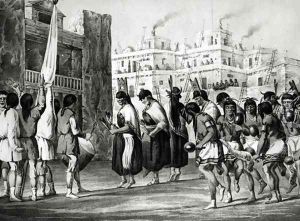Kern, Ricard Hovenden Paintings
Ricard Hovenden Kern, also known as Richard H. Kern, was an American artist known primarily for his work as an illustrator and ethnographer. Born in 1860, Kern came from a family with a notable artistic and exploratory legacy. His father, Edward Meyer Kern, and uncles, Richard and Benjamin Kern, were involved in various expeditions in the American West, including the famous Pacific Railroad Surveys of the 1850s which aimed to explore and map the region.
Ricard Hovenden Kern spent much of his career documenting Native American cultures and the landscapes of the American West. His works were often characterized by a meticulous attention to detail and an effort to accurately portray the subjects he studied. This dedication to realism and ethnographic accuracy was partly inherited from his family's involvement in exploration and surveying.
Throughout his career, Kern worked with a number of scientific and government expeditions. His illustrations served as a valuable record of Native American life and artifacts at a time when such cultures were under significant pressure from the expansion of American settlers and the policies of the United States government. Kern's drawings and paintings provided a window into a world that was rapidly changing, and they have been used by historians and anthropologists to understand the cultural practices and environments of the 19th-century American West.
Despite his contributions to the fields of art and ethnography, Ricard Hovenden Kern is not as widely known as some of his contemporaries. He passed away in 1931, leaving behind a legacy as a skilled illustrator and an important chronicler of the American frontier. Kern's work can be seen in various historical archives, and it continues to be of interest to those studying the period of American expansion and the history of the indigenous peoples of North America.
